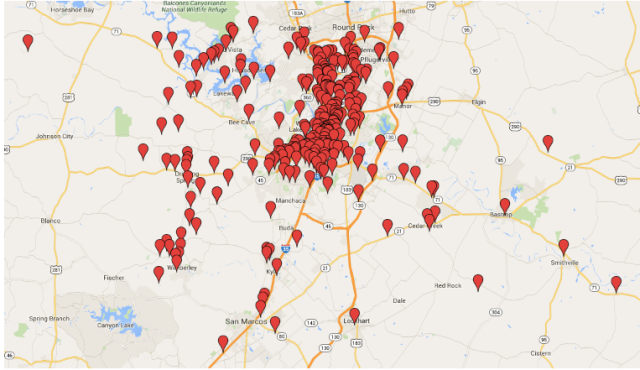
Google addresses found in short URLs associated with a single user in Austin, Texas, courtesy of Google's old 5-character short URL tokens. (credit: Vitaly Shmatikov)
Two security researchers have published research exposing the potential privacy problems connected to using Web address shortening services. When used to share data protected by credentials included in the Web address associated with the content, these services could allow an attacker to gain access to data simply by searching through the entire address space for a URL-shortening service in search of content, because of how predictable and short those addresses are.
Both Microsoft and Google have offered URL shortening services embedded in various cloud services. Microsoft included the 1drv.ms URL shortening service in its OneDrive cloud storage service and a similar service (binged.it) for Bing Maps—"branded" domains of the bit.ly domain shortening service; Microsoft has stopped offering the OneDrive embedded shortener, but existing URLs are still accessible. Google Maps has an embedded a tool that creates URLs with the goo.gl domain.
Vitaly Shmatikov of Cornell Tech and visiting researcher Martin Georgiev conducted an 18-month study in which they focused on OneDrive and Google Maps. "We did not perform a comprehensive scan of all short URLs (as our analysis shows, such a scan would have been within the capabilities of a more powerful adversary)," Shmatikov wrote in a blog post today, "but we sampled enough to discover interesting information and draw important conclusions." One of those conclusions was that Microsoft's OneDrive shortened URLs were entirely too easy to traverse.